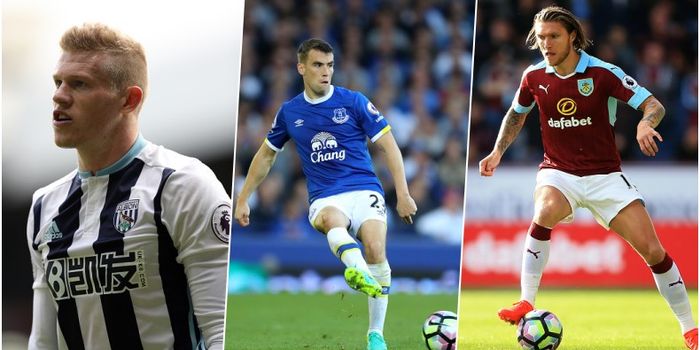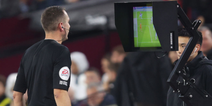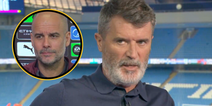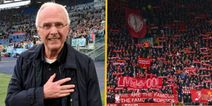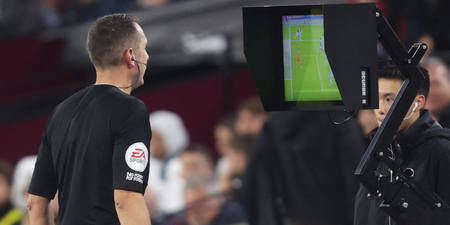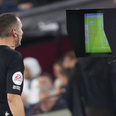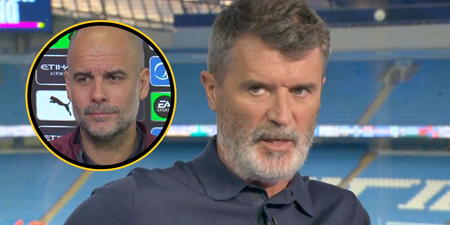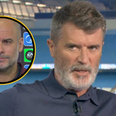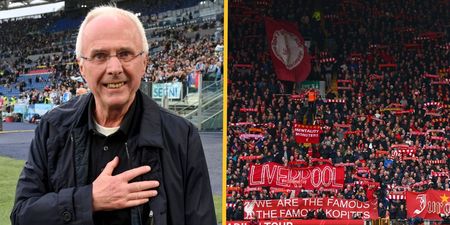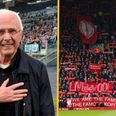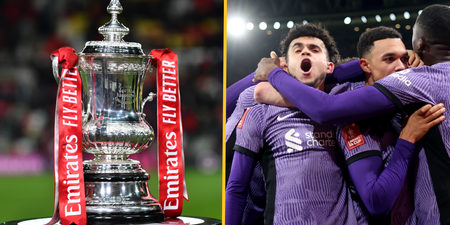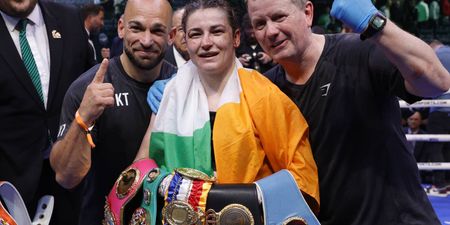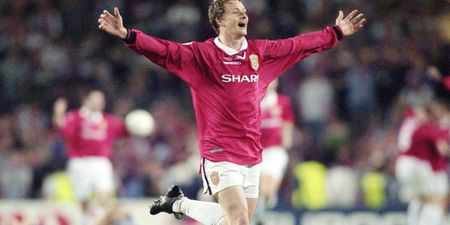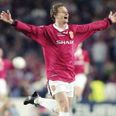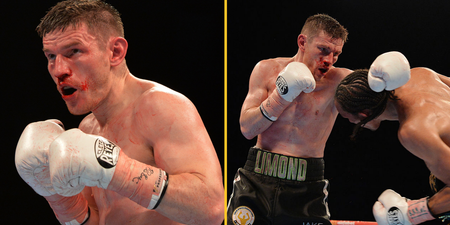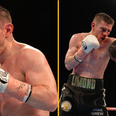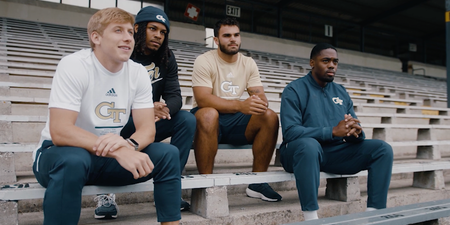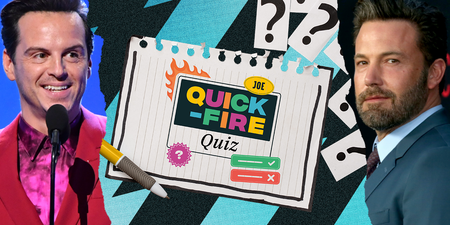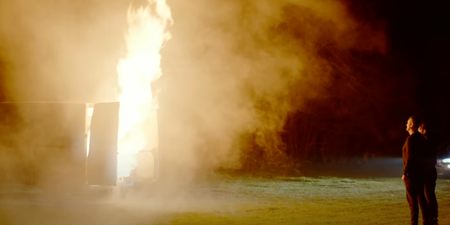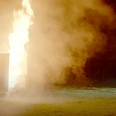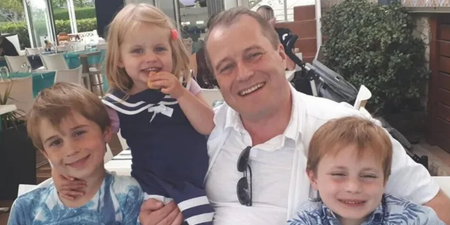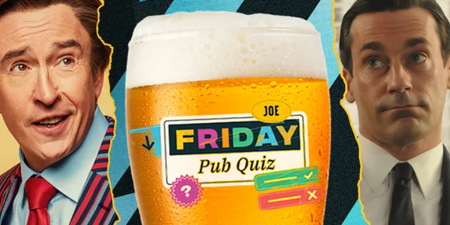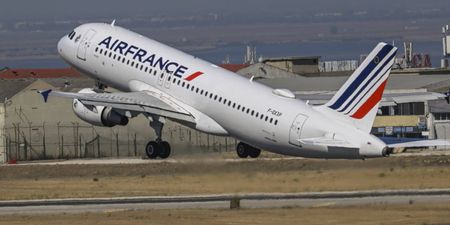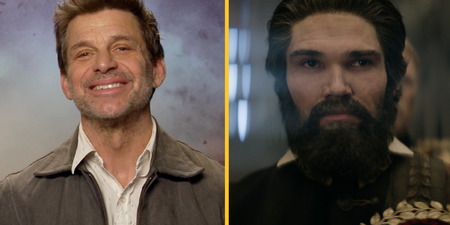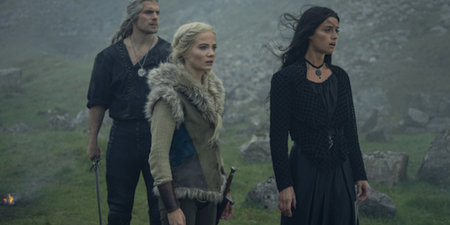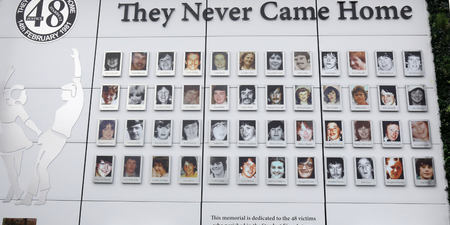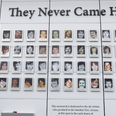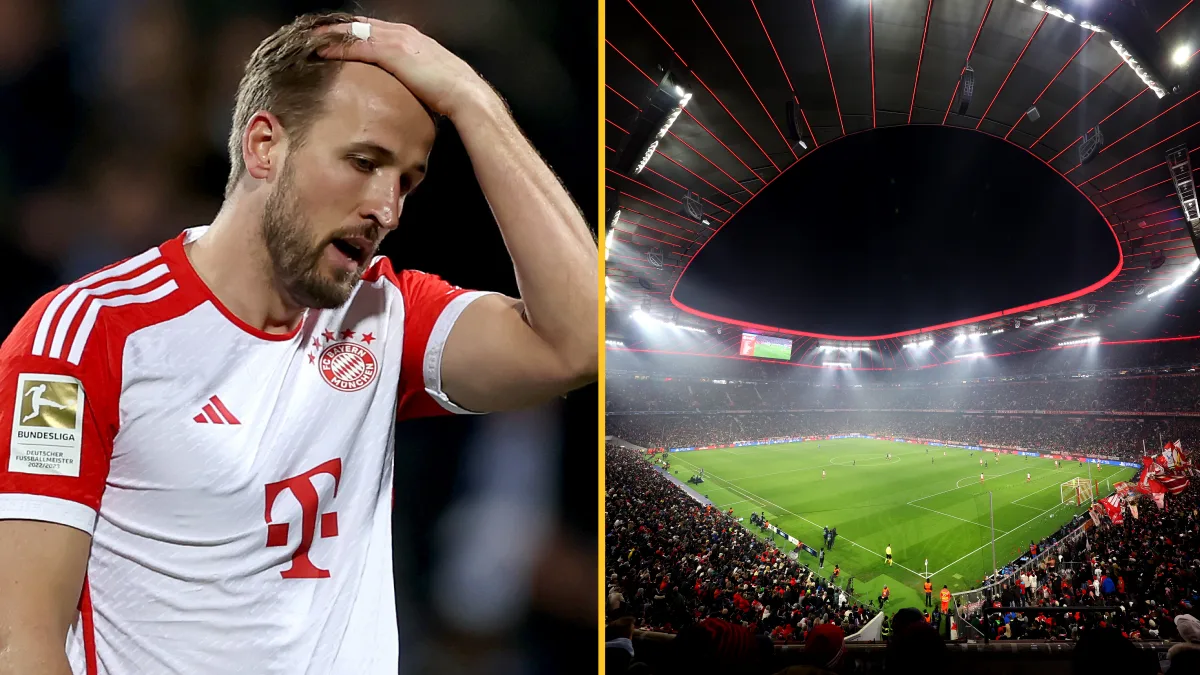JOE columnist Niall Quinn with a very sobering look at the dwindling number of Irish players in the Premier League.
I was speaking to somebody recently from a big Premier League club in England and I asked had they any young Irish players on their radar. The answer was a bit crushing.
He said that they weren’t really interested in Irish players unless they could get them to commit from the age of twelve years.
Why? They are happy that they could identify the talent in our kids of ten, eleven or twelve years of age but they didn’t think they could trust our system to nurture that talent.
It was one of those occasions when you want to argue but you realise that the better option is just to go away and think about it.
We produce a lot of good coaches in Ireland. We produce a lot of good kids who can really play football. We seem to have trouble connecting the two groups, though.
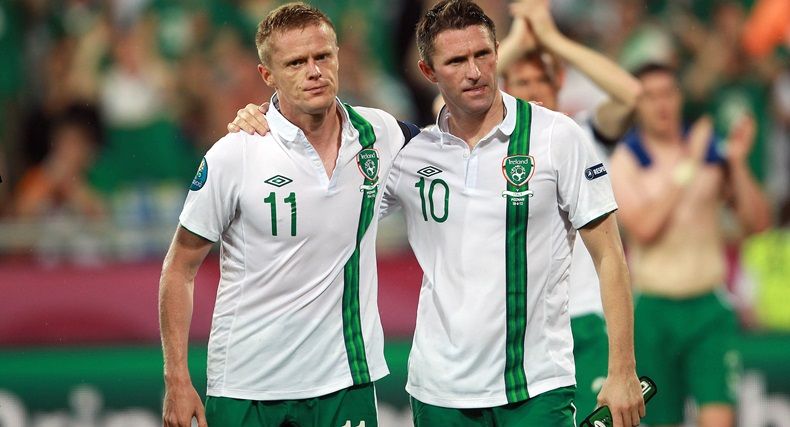
We produce a lot of people, physios, sports psychologists and administrators who can work in top English clubs but they aren’t taking our coaches and they are taking fewer and fewer of our players.
It isn’t just an Irish problem. English clubs are starting to feel the same way about young English players. The game in England will have to look at its structures in a world where football scouting is a global business.
A few years ago some stats were published showing that in terms of the UEFA Pro Licence (the highest qualification for coaches), Spain had 2,140 coaches, Germany had over 1,000 while England had just 203.
It was the same story with the ‘A’ licence (the second-highest qualification), Spain was again top with 12,720 coaches, Germany had 5,500 while England had just 1,161.
We are further down the charts in Ireland, no doubt, but in per capita terms we have enough good coaches. How do we connect them up with the talent and with the broader football world?
Qualifying as a football coach takes a lot of time and money. The Pro licence requires 250 contact hours over two years.
The A licence, which you must have before attempting the pro licence, requires 270 contact hours.
So getting through the B, A and Pro Licences is going to take a lot of time and money for a young coach.
We need a system that allows them to do what they are trained to do and a system which is a passport for working abroad and perhaps bringing back knowledge from there.
In Germany, for instance, they have a talent programme to identify talented kids whom they then put into a system to teach them skills and tactics.
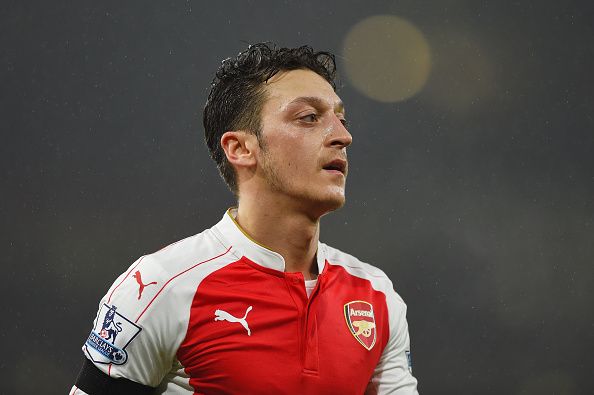
This system isn’t dependent on clubs as per the English and Irish models. The Germans use over 1000 of their B-qualified coaches and they scout as well as train the kids. They reckon they miss nothing in terms of talent.
And if a kid is signed up by a club they will still attend the local development programme in their region.
Other kids, the vast majority play for their small local teams, go to the development sessions once a week where they may get spotted by bigger clubs, but they always get put in touch with coaches who will make them better players.
Everybody would know that the kids who passed through this programme while staying at home (and getting educated too) would be equipped with a guaranteed range of skills and tactical abilities.
Incorporating this kind of template in Ireland would take the pressure off clubs where the results are at best patchy right now. It would put an end to a system which is starting to tell us that if a kid isn’t snapped up by the age of twelve then his chances are getting slimmer every year.
We pay a lot of lip service to sport in Ireland. You can’t get standing room on the bandwagon when things are going well. The rest of the year it’s a lonely, thankless slog for coaches and volunteers running the grassroots game.
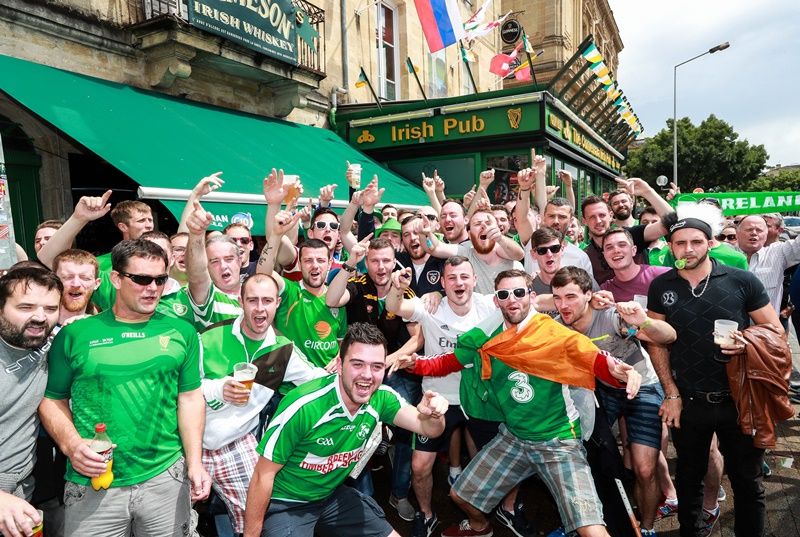
Sport brings all sorts of benefits apart from pride and celebrations on great days. In terms of our health and education and the sort of community we want to be, we should be investing far more money. Leaving the creation of facilities to one side, a lot of this new money needs to be channelled to the training and maintenance of coaches.
Speaking as a former board member of the Irish Sports Council I find it more difficult than ever now to see a coherent sports policy that is moving with the times. Our elected leaders and keepers of the public finances must understand that we have the talent to do better. Can they make a plan to give that talent the resources and support it needs?
If not, their last bandwagon may just have departed.
Scottish football: A once great
Celtic beat Kilmarnock by a hatful of goals on Saturday afternoon, while Rangers continued their flat return to the Scottish Premiership yesterday by losing to Aberdeen.
With their first home game of the Champions League coming up on Wednesday these should be happy times in Paradise for Celtic fans.
You would have to worry though. Not just about Celtic but about where the game in Scotland is going.
We all know that for everyone the real start of the Christmas season every year comes on the 19th of December when they commemorate that evening in 1989 when Arsenal played Rangers at Ibrox for what was billed the unofficial Championship of Great Britain.
OK, maybe not everyone, but the winning goal was scored for Arsenal by an up and coming messiah from the Crumlin area in Dublin.
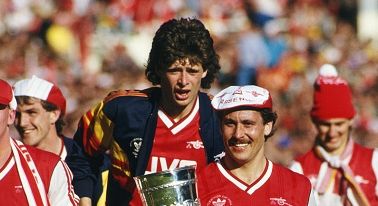
Unfortunately there weren’t enough wise men watching and he got transferred to struggling Manchester City soon afterwards.
The point is that the game against Rangers was seen as a serious occasion. The Champions of England in battle against the Champions of Scotland.
Rangers were missing Ally McCoist that night but had seven full internationals playing, five of them English and showcasing themselves in a World Cup season.
Before the game, the managers (George Graham and Graeme Souness, both Scots) were interviewed by a young, fresh faced, presenter called Jim White (whatever happened to him?) and they spoke about the prestige of the occasion.
They backed it up by putting their strongest teams out. And me.
There were thirty one thousand in Ibrox on a night for brass monkeys in December. The game was broadcast live to fans back in Highbury and shown later on television. It was serious business.
When we won, most of Ibrox booed. Maybe Rangers had the last laugh though. Four of their players made the England squad for Italia 90. Another three went with Scotland. None of the Arsenal players made either squad and that was before the Foreign Legion came.
There is still enough romance about Celtic that Wednesday’s visit of Manchester City will stir up hope and excitement in half of Glasgow.
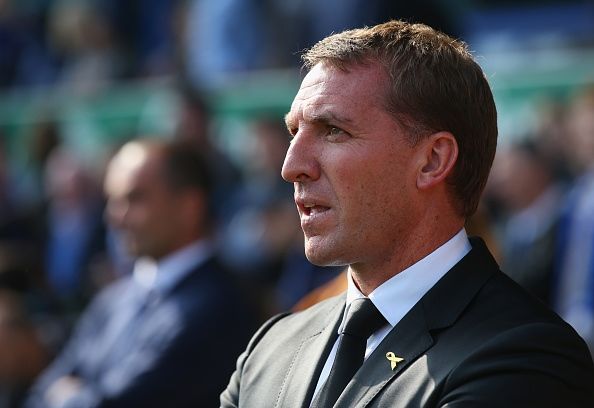
If he was watching his old club, Swansea, on Saturday afternoon Brendan Rodgers will have noticed how they exploited some odd quirks in City’s defence. For Pep that is still a work in progress.
Maybe Celtic can steal something this week but playing European football after Christmas seems like a very long shot.
The hammering Celtic got in Barcelona a few weeks back was a cruel demonstration on where the power lies in modern football.
Scottish football is no longer the noisy neighbour for the English game. It’s a distant and impoverished place that the English game has almost forgotten about. Last week, the Football League decided not to entertain the idea of having teams like Celtic and Rangers enter its ranks. Either club would have been very interested in getting a foot on that ladder.
The reasons are obvious.
This year, Swansea, a Welsh club, will be guaranteed TV rights money of £97 million if they finish bottom of the Premier League.
If they appear on television more than ten times they will get more than that. If they win the competition they will receive £148 million. Should they finish mid-table in tenth place, say, they can expect £118 million.
The current TV deal for Scottish football brings in £15 million a season to be divvied up between the clubs. That is £5 million less than it costs to broadcast two English Premier League matches. No matter how you slice it, Celtic and Rangers are going to struggle to be seriously competitive with anybody but each other for the foreseeable future.
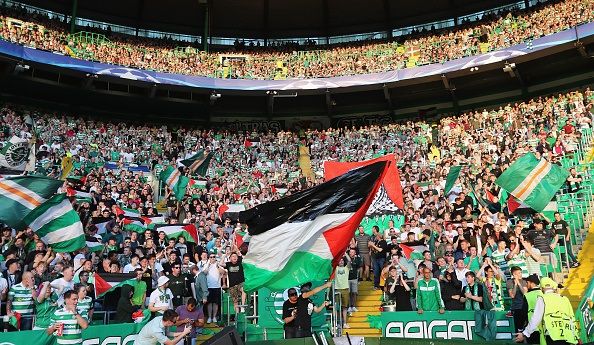
That is a great pity.
If you grew up when I did every decent team in England seemed to be backboned by Scottish players.
The great Liverpool side of Hansen, Nicol, Souness and Dalglish. Forest with Gemmill, Burns, Robertson and O’Hare. Leeds in the seventies with Bremner, the Grays, Lorimer and later McQueen and Jordan.
Just having a Scottish accent back then seemed to be the equivalent of acquiring the Pro Licence today in terms of becoming a manager. Alex Ferguson was the last of a line that runs back through Shankly, Stein, Busby and so many others.
Something changed in Scottish society that ended that production line. I’m not sure what it was and I’ve never read a good explanation but I imagine that Margaret Thatcher can’t have been a big help. Somehow, despite having qualified for six World Cups in a row, Scotland haven’t been back to the big show since 1998.
There are plenty of clubs in the football world who aren’t the great powers that they once were. For different reasons Celtic and Rangers are among them.
Celtic have been a well run club for many years now. They will make £30 million from their European adventure this year.
That will be really welcome but it amounts to less than half a Paul Pogba before anybody even starts wondering about wages.
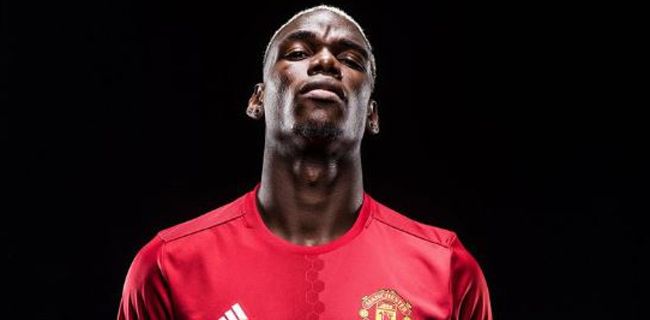
Unless the world changes rapidly, Celtic will be restricted to continuing their policy of scouting for good young players who they will lose to English clubs as soon as somebody south of the border notices them.
Is there a quick fix? Not an obvious one. The quickest route to madness for football people in small countries is to compare themselves constantly to the bigger league next door. The SPL will never thrive if it is always seen as Premier League Lite. It can have its own virtues and attractions.
To me, as an outsider, it seems that Scotland needs to get back to producing the brand of player that it was once famous for. That involves huge investment in coaching going all the way down to grassroots level and strengthening the top league so that it isn’t an eternal competition between two clubs in the same city.
It’s not a quick process but if you look at the success of places like Iceland or Belgium it can pay off.
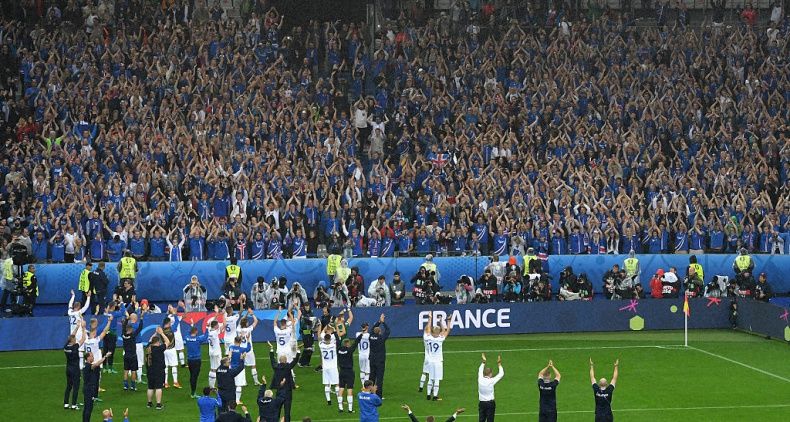
The success of their international sides and the visibility of their top players feeds back into the system and draws kids into football in greater numbers.
In Belgium, the domestic league – a modest league overshadowed by lots of other competitions on the continent – draws in £40 million a year in TV rights before foreign sales. If you create enough good players, people start to identify with your clubs and with your system. They will buy the season tickets and the subscriptions.
They’ll still follow the Premier League and there is no harm in that. A lot of people who will pay a lot of money to see the Rolling Stones also enjoy a quiet gig with a singer songwriter in a small venue where they feel a connection.
In Holland, around ten years ago, the clubs banded together and created their own football channel that showed all Dutch games live. It worked.
The football was decent and distinctive. The channel was bought out and the subsequent deal brought in nearly £60 million per season.
That’s a lot of money to put back into clubs and coaching systems.
For Celtic and Rangers, the Premier League isn’t the enemy. Just like the Bundesliga isn’t the enemy for the Dutch or Ligue Un isn’t the enemy for Belgians. The Premier League and its rights deals and its superstars are the proof of the appetite there is out there to latch onto some competition to believe in.
I am convinced that if you get your coaching right, your community programmes right and you share the knowledge and the talent the Premier League will do nothing to you except promote football.
Yes the good players will be swallowed up by the big Premier League clubs but what better advertisement would there be then to have the modern Hansen, Nicol, Dalglish and Souness playing Champions League together for a top team.
The challenge is producing players with the technical knowledge and skills to compete anywhere, be it home or abroad. Produce them and all the other things will come.
Celtic may surprise everybody on Wednesday night. Celtic Park is a special place where special things happen. But there is no point in looking back and wondering what happened to the Lions of Lisbon or the unofficial Championship of Britain.
Where Scottish football is in ten years time is more important than where it has come from.
Niall Quinn is a former Arsenal, Manchester City, Sunderland and Republic of Ireland striker. He currently works as a pundit and co-commentator for Sky Sports, and also writes for Sportsvibe.
